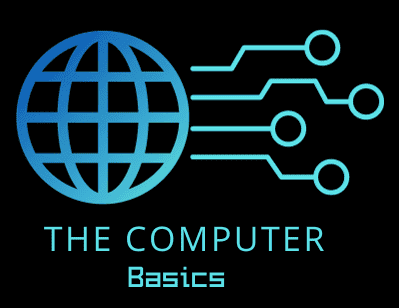In today’s digital world, the importance of a strong password can’t be overstated. With most of your life accessible online, from banking to social media, the last thing you want is someone gaining unauthorized access to your accounts.
A strong password acts as a first line of defense against cyber threats. It keeps your personal data out of the hands of hackers and cybercriminals.

Creating a strong password isn’t as tough as it might seem. It’s all about mixing up various characters, numbers, and symbols to form a combination that’s tough to crack.
You’ll want to avoid common mistakes like using easily guessable information, such as your name or birthday, as these are often the first things hackers will try. Instead, think of a password as a secret code that only you can decipher.
Remember, the security of your online accounts hinges on the strength of your passwords. So, it’s worth taking the time to craft something that’s both secure and memorable for you.
If you’re worried about forgetting your complex passwords, consider using a password manager, which can store all your credentials and even generate strong passwords for you. Keeping secure means staying one step ahead, and a robust password does just that.
Understanding Password Vulnerabilities
When you create a password, you might not realize just how many ways it can be compromised. Understanding these risks is the first step toward protecting your digital life.
Common Types of Password Attacks
Brute-force Attacks: In these attacks, cybercriminals use automated software to generate a large number of guesses to crack your password. The shorter and simpler your password, the quicker it’s unraveled by these relentless methods.
Phishing: It’s a deceptive technique where hackers trick you into revealing your passwords through fake emails or websites. They often mimic legitimate companies to catch you off guard.
Dictionary Attacks: Similar to brute force but more refined, attackers use a list of common words and phrases instead of random combinations to guess your password.
The Consequences of Data Breaches
- Financial Loss: If cybercriminals access your financial accounts, they can steal your money or make unauthorized purchases.
- Identity Theft: Hackers can use your personal data from breaches to impersonate you, causing long-term damage to your reputation.
- Loss of Trust: If you’re running a business, a breach can erode your customers’ trust, potentially ruining your reputation and causing economic damage.
Data breaches not only affect your online security but can ripple through every aspect of your life. It’s crucial to be proactive and safeguard your information with strong, unique passwords.
Elements of a Strong Password
Creating a strong password is like building a fortress. It’s all about the right combination of defensive features that ward off would-be intruders. Here’s what you need to focus on to ensure your digital fortifications are robust.
Combining Characters for Optimal Security
Use a diverse mix of characters to significantly lower the chances of someone cracking your passwords. Include:
- Special characters like
!,@,#,$ - Numbers, not just 1 or 2, scatter them throughout
- Both uppercase and lowercase letters to add complexity
Think of it as crafting a secret code that deters attackers at every turn.
The Role of Password Length
When it comes to your passwords, size does matter. Aim for:
- At least 12 characters in length; the more, the better
Here’s why this matters: each additional character exponentially multiplies the possible combinations, making your password harder to guess or brute-force through automated attempts.
Creating and Managing Your Passwords

When you’re managing a range of online accounts, strong, unique passwords are your first line of defense against cyber threats. It’s crucial to create a password that’s hard to crack and easy for you to recall.
Techniques for Generating Strong Passwords
A good starting point is using a password generator, which can create complex and random strings of characters that are tough for attackers to guess.
When crafting your passwords, aim for a mix of upper and lowercase letters, numbers, and symbols. Avoid sequential numbers or obvious phrases. Instead, try creating passphrases—long, memorable phrases peppered with unusual character combinations. Think “MyC@tLoves2Play!” rather than “fluffy123.”
Password Managers: A User’s Ally
Remembering every password is a hassle, and reusing them is a no-go for security. That’s where a password manager comes in handy.
Programs like 1Password store all your different passwords in one secure vault that’s accessible with a single master key. They also help by alerting you to weak or reused passwords, and many can automatically generate strong passwords whenever you need one.
Enhancing Account Security Beyond Passwords

While strong passwords are your first line of defense, beefing up your account security calls for additional measures. Let’s look at the must-haves for a tighter security setup.
The Importance of Multi-Factor Authentication
Multi-factor authentication (MFA) is like having a combo lock on your digital life. It adds layers beyond your password, so if someone’s got your password, they’ve still got hurdles to jump. Think of it as a fantastic way to double-check that it’s really you trying to get in. Here’s the deal:
- Something you know: Your password or a PIN.
- Something you have: A mobile device or hardware token that can receive a verification code.
- Something you are: Biometrics like a fingerprint or facial recognition.
Regularly Updating Your Passwords
Updating your passwords regularly is like changing the locks on your doors periodically. It keeps potential intruders guessing and can protect you if a password somehow falls into the wrong hands. Try these tips:
- Change your passwords every 3 to 6 months.
- Don’t recycle passwords. Fresh is always better.
- Set reminders to update your passwords – you wouldn’t want to miss a security beat!
Staying Safe in the Digital World

In today’s ever-connected society, securing your personal and sensitive data is crucial. Adopting best practices for online behavior and staying vigilant against new threats can significantly bolster your online safety.
Best Practices for Online Behavior
Passwords: Your first line of defense against identity theft is a strong password. You should always:
- Create passwords with a combination of uppercase and lowercase letters, numbers, and symbols.
- Ensure passwords are at least 12 characters long; longer is better for security.
Updates: Keep all your technology updated. Regular updates often contain security patches that protect you from vulnerabilities that could be exploited by hackers.
Continuous Vigilance Against Emerging Threats
Always stay informed about the latest methods used by cybercriminals. Here’s how to remain vigilant:
- Monitor your accounts frequently: Check for unauthorized access or suspicious activity regularly.
- Use reputed security tools: Antivirus and anti-malware software can offer an additional layer of protection. They notify you about potential threats.
Remember, in the digital world, being proactive about your security is the key to safeguarding your data.

